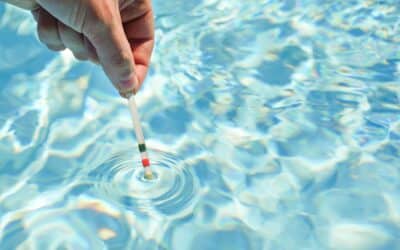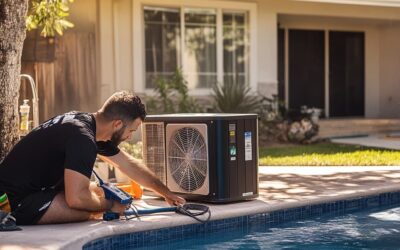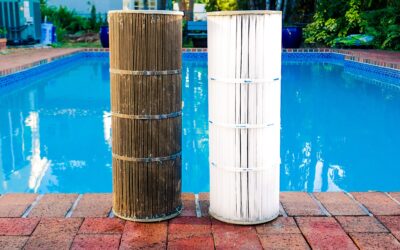Canadians living in Ottawa know winter climates well. Perhaps residents who feel the most attuned to weather throughout the year are pool owners, who spend summers waiting for their pools to warm up and winters closing them down for the year. Rather than chasing this cycle, many pool owners are turning to heated pool solutions to keep their backyard oasis at a comfortable temperature. In this guide, we’ll examine how to heat a swimming pool and top tips related to installing a pool heater.
How Do Heated Pools Work?
Heated pools have heat pumps that circulate the water, removing cool water and replacing it with warmer water. This allows you to keep the pool at your desired temperature even when the outside temperature drops in the fall or winter. People primarily choose heated pools to enjoy the benefit of having an inground pool for more months of the year.
Heated Pool Benefits
Aside from no more teeth-chattering when you take a dip, homeowners rave about the multiple advantages of having a heated pool.
Ultimate Relaxation
The ability to regulate the temperature of your pool allows you to have a more relaxing experience. Nothing helps you unwind after a tiring day than stepping into a warm pool and allowing the water to ease your tension.
Extended Swim Seasons
Areas in and around Ottawa experience long and cold winters. It often feels like summer swim season comes and goes in a blip. A heated pool lets you control when swim season starts and ends, making your investment in a backyard oasis even more worthwhile.
Therapeutic Advantages
Some people seek out warm water pools specifically for their therapeutic benefits. Athletes enjoy them for aiding in muscle recovery and allowing them to participate in low-impact workouts. Water adds natural resistance, so you can add a resistance routine to your plan without straining your joints.
Some people use heated pools to help with medical conditions, such as swelling or edema. Warm water promotes more circulation, which helps the cardiovascular and lymphatic systems move fluid away from swollen extremities. Finally, physical therapists often use heated pools to help patients who want to increase their range of motion.
Installing a Heat Pump
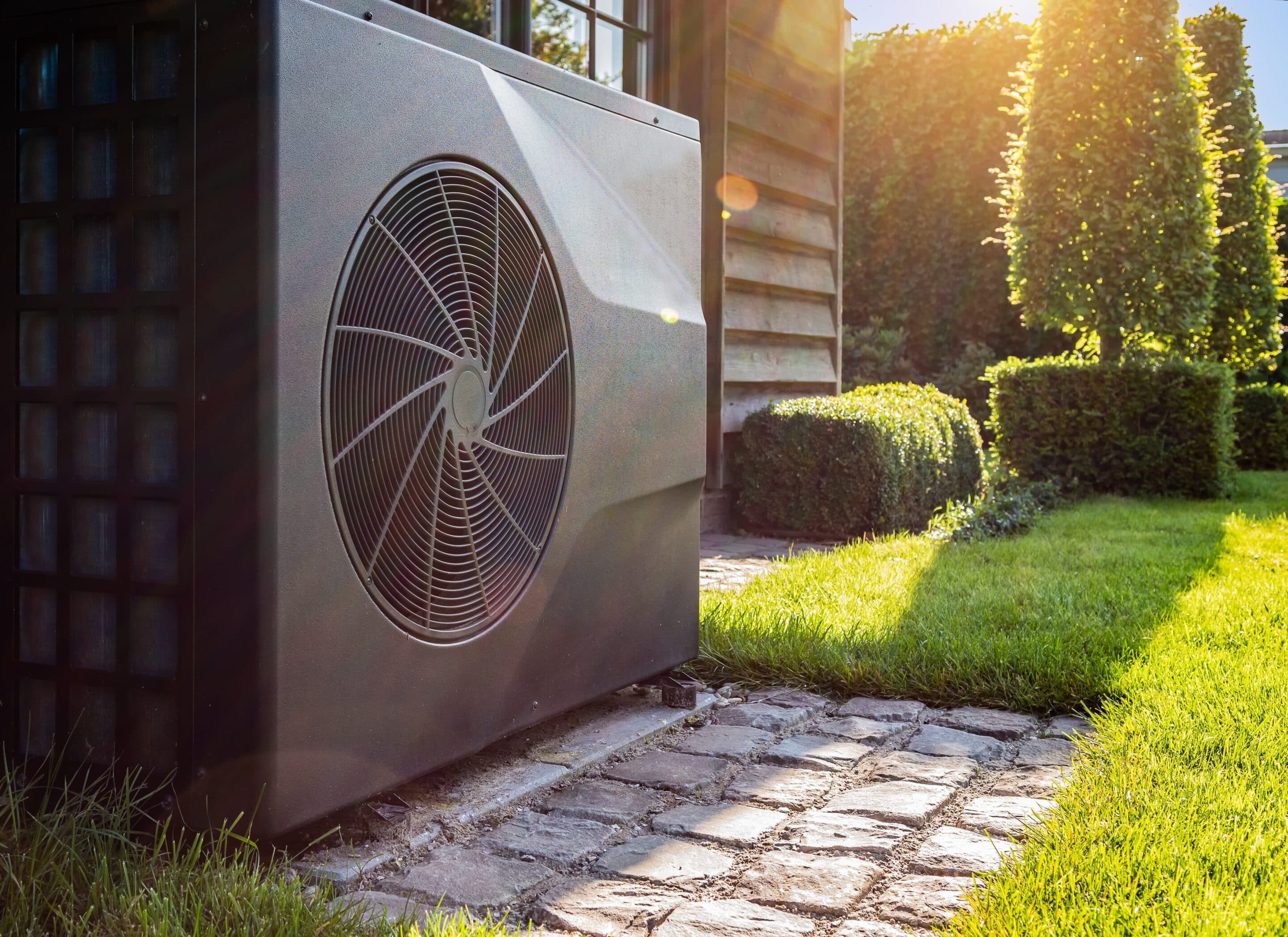
After installing or setting up your pool, you’ll want to look for a heat pump that can adequately heat the volume of water. In addition, you’ll want to consider how early and late you want to extend your swimming season. Some pumps work best to keep temperatures warm in the summer, while others work harder to ensure a warm pool throughout more of the year.
Types of Heat Pump
There are three main types of heat pumps you can use for your pool. Keep in mind that each requires its own set of maintenance tasks and may vary in complexity depending on the brand. Here are the main heat pump options available on the market:
- Propane or Gas: Propane or gas heat pumps are ideal for swimmers who want to warm up their pool fast. They are a powerful option that helps keep your pool warm in the off-seasons.
- Solar: For a more eco-friendly option, a solar-powered heat pump uses energy from the sun to power the heater. While these tend to be on the pricey side, they don’t consume energy like propane or electric options.
- Electric: An electric heat pump is a good middle-of-the-road option. It’s not as powerful as gas or propane heaters, yet it’s less expensive than a solar heater. Electric is a great option for those who use their pool less frequently and aren’t looking for instantaneous warming.
Can a Heat Pump Cool Down My Pool?
Yes! The great thing about a heat pump is that it can keep your pool warm and more comfortable to swim in. But just as it can remove cool water for warm, it can do the inverse. That means a heat pump can also cool your pool.
Pool Covers
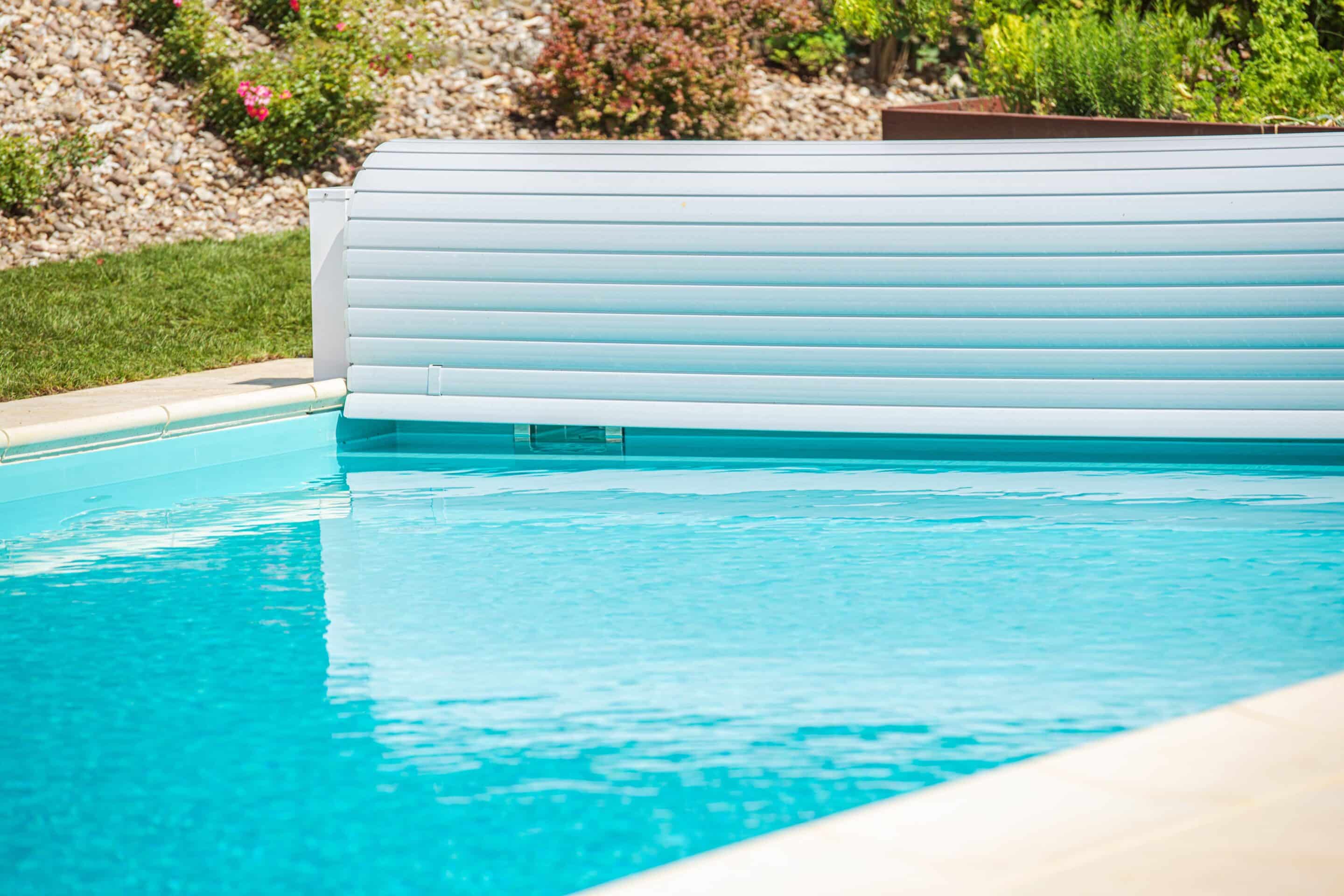
Beyond a quality pool heater, a durable pool cover is your best friend for keeping your pool warm. That’s because they trap in warmth while preventing wind from cooling the water. If that wasn’t enough of a win-win, you can also avoid cleaning your pool as frequently because it won’t get bogged down with debris as fast.
When shopping for a pool cover, just as shopping for a pool heater, there are a few options to choose from:
- Safety covers: These covers are anchored to the pool’s surface; they can protect people, children, or pets from falling in.
- Tarp covers: Easy-to-install tarp covers can protect your pool from debris and keep it warm for short periods.
- Automatic pool covers: Anchored to your pool deck, these covers can seamlessly open and close, meaning your pool can stay warmer for longer.
- Solar pool covers: This option uses a mesh cover, allowing sunlight to penetrate it, maximizing the efficiency of heating the water and reducing energy costs.
Note that a pool cover is a fantastic option for any pool, but on a sunny summer day, it never hurts to peel back the cover and allow sunlight to warm the water naturally, thus lowering energy costs.
Quick Tips For Keeping Your Pool Wam
- In addition to a pool cover, fences, gazebos, or sheds close to your pool can block wind, preventing the water from cooling too fast on blustery days.
- Solar rings, which are inflatable devices placed around the pool’s surface, can absorb 50% of the sunlight and transfer heat to the pool.
- A liquid solar blanket is a chemical that is safe to swim in, nearly invisible, and can heat your pool.
Is a Heated Pool Worth It?
One reason people hesitate to purchase pools in Ottawa is the fear that they won’t be able to use them enough due to harsh winter weather. However, the ability to extend the swimming season alone can make a heated swimming pool worth it. A heated pool also provides convenience and health benefits. It is worth it if you’re concerned about stress or want to enjoy a more active lifestyle.
Explore Your Options with Benson Pools
Are you ready to install an inground pool? Contact us today at Benson Pools to learn more about our inground options and how to get started. We can help you find the perfect oasis for your household’s needs and budget.
